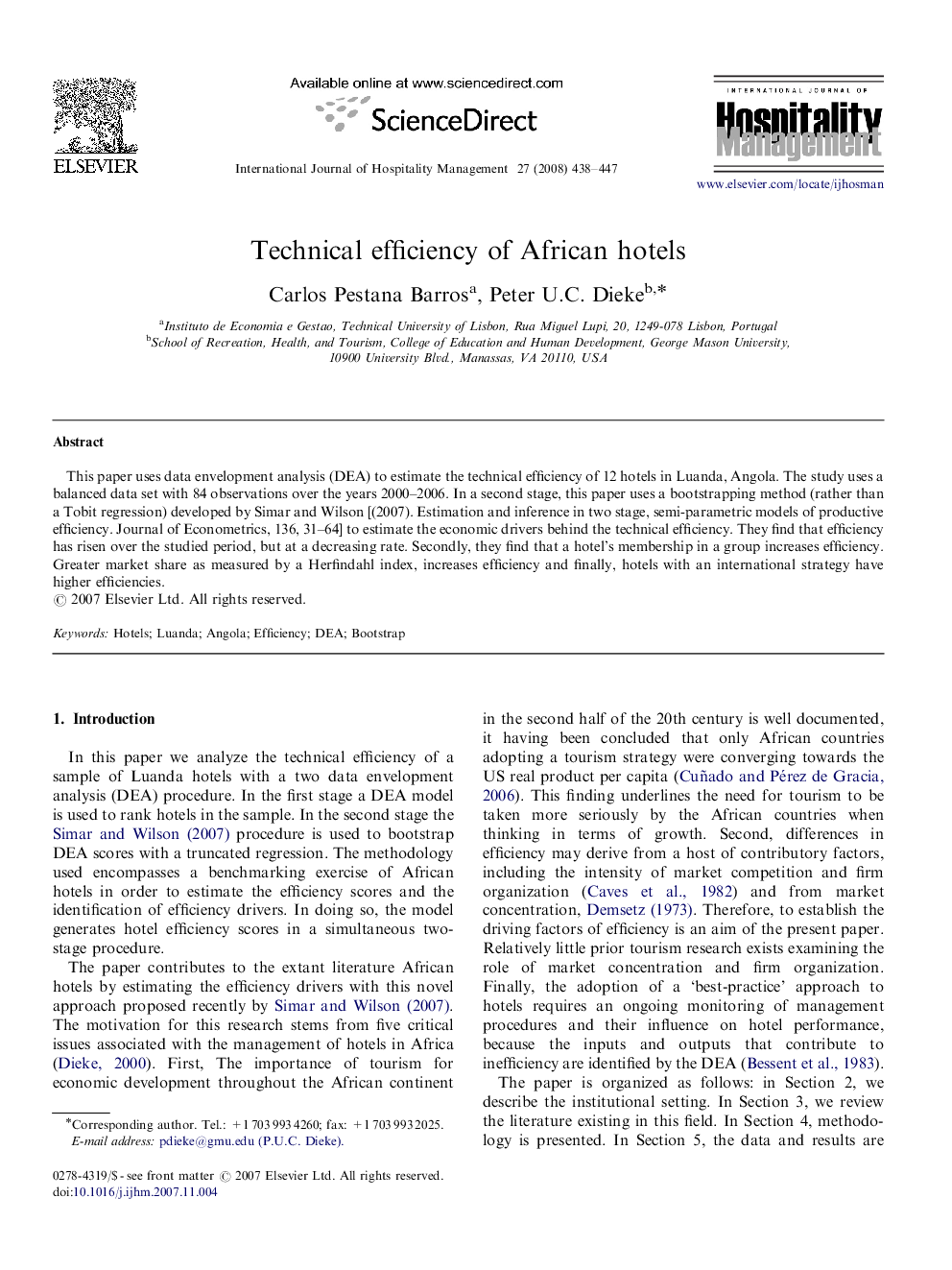| Article ID | Journal | Published Year | Pages | File Type |
|---|---|---|---|---|
| 1010490 | International Journal of Hospitality Management | 2008 | 10 Pages |
This paper uses data envelopment analysis (DEA) to estimate the technical efficiency of 12 hotels in Luanda, Angola. The study uses a balanced data set with 84 observations over the years 2000–2006. In a second stage, this paper uses a bootstrapping method (rather than a Tobit regression) developed by Simar and Wilson [(2007). Estimation and inference in two stage, semi-parametric models of productive efficiency. Journal of Econometrics, 136, 31–64] to estimate the economic drivers behind the technical efficiency. They find that efficiency has risen over the studied period, but at a decreasing rate. Secondly, they find that a hotel's membership in a group increases efficiency. Greater market share as measured by a Herfindahl index, increases efficiency and finally, hotels with an international strategy have higher efficiencies.
